The sale of "Dolce Passoine" watermelons started during the first week of May, just as Macfrut was taking place. This watermelon selected in Italy is commercialized by 4 Italian companies that decided to work together and set up a consortium (Alma Seges, Cico-Mazzoni, Lorenzini Naturamica Op, Ortofrutta Castello) with the objective of conquering a considerable share of the market at both national and international level. Lamboseeds is the fifth partner and, as an Italian seed company, it holds the patent to the Giotto variety, of which the consortium boasts the exclusive licence.
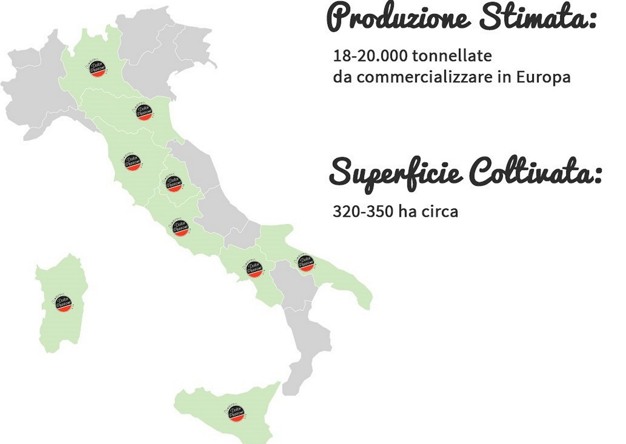
"Production is distributed all over the domestic territory, in different percentages depending on the area, cultivation technique and weather. At the moment, the right quantities are available, quality is good and prices are interesting in both big retail chains and domestic and foreign wholesale markets," explains the consortium director Luciano Trentini.
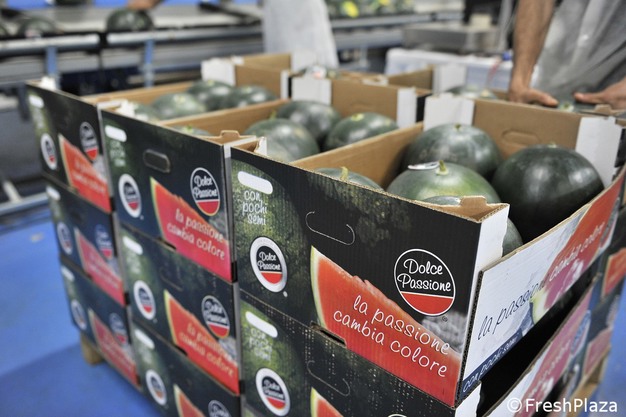
The Giotto cultivar produces perfectly round watermelons (hence the name), boasting a thin black rind, sweet and firm flesh of a deep red color with small white edible seeds. The Brix levels are always high and, as per the specifications, the fruits cannot be sold under the brand's name if they do not exceed 11°.
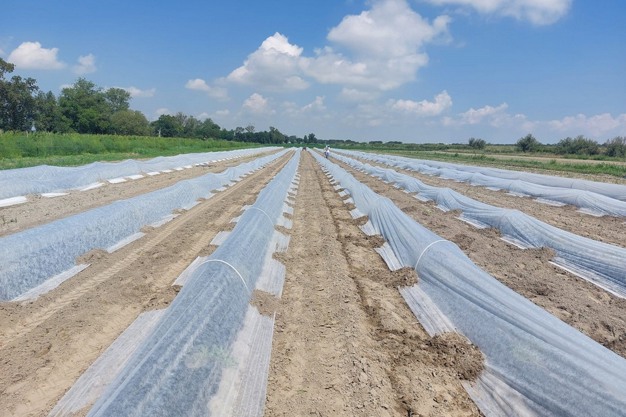 Late Dolce Passione crop under non-woven fabric to reduce the presence of aphids to a minimum.
Late Dolce Passione crop under non-woven fabric to reduce the presence of aphids to a minimum.
"The data concerning the foreign target countries were collected analyzing the import/export of the single countries as well as the ratio between domestic production and population. So far, keeping into consideration the period of availability and the volumes available, the consortium exports mainly to France, Germany and Austria."
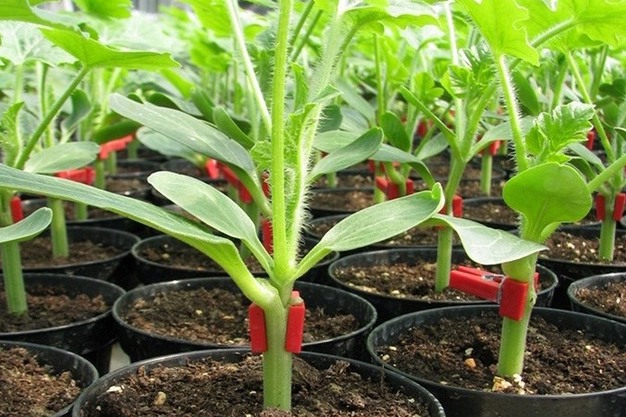 Watermelon plants on Cassius rootstock.
Watermelon plants on Cassius rootstock.
"As for the open fields, we focus on 'virgin' land, i.e. free from pathogens. We are aware of the difficulty of finding such land, as it is sought after by all watermelon producers, and therefore we use grafts. On the suggestion of Lamboseeds, the consortium opted for the Cassius rootstock, a watermelon hybrid with high grafting affinity."
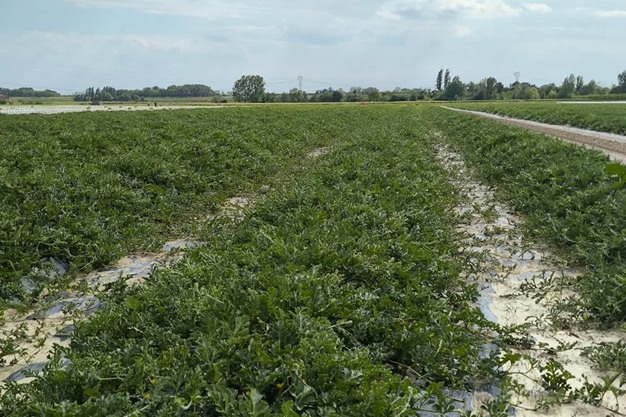 Biodegradable mulching films to reduce weeds and the damage caused by heavy rain.
Biodegradable mulching films to reduce weeds and the damage caused by heavy rain.
A second agronomic indication put into practice by many producers part of the consortium is linked with the fight against weeds. To avoid having to use chemical weeders, the consortium recommends using micro-pierced black biodegradable mulching films between the interrows. This technique, combined with the mulching films on the rows (generally transparent to favor earliness), helps delay weed growth, helping watermelon plants expand and create a natural barrier against them.
For more information:
Consorzio Dolce Passione
+39 0425 958750
[email protected]
www.consorziodolcepassione.com
